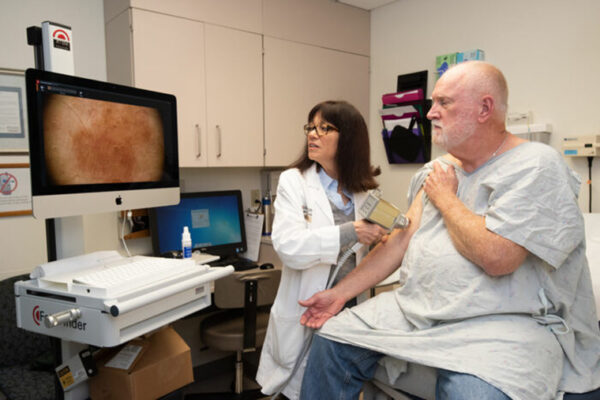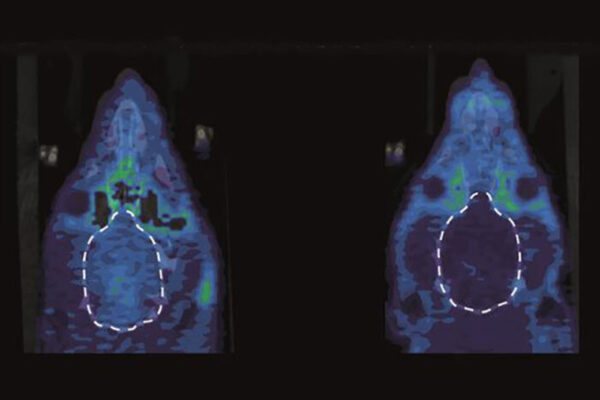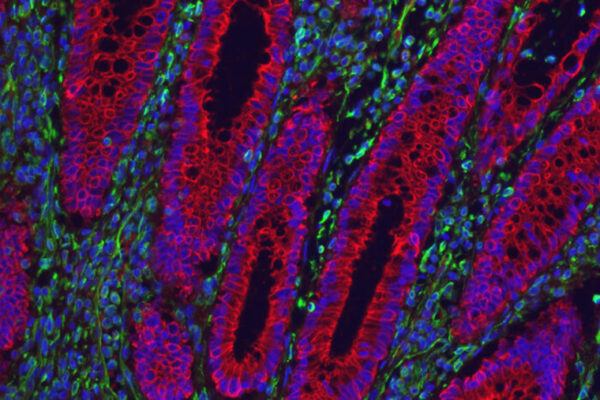Topical immunotherapy keeps skin cancer risk at bay
A combination of two topical creams lowers the risk that patients will develop squamous cell carcinoma of the skin, according to new research at the School of Medicine. The combination already has been shown to clear precancerous skin lesions from sun-damaged skin.
Washington People: Erik Herzog
Erik Herzog, professor of biology in Arts & Sciences, studies the molecules, cells and circuits of mammalian circadian timing. He also supports and encourages younger neuroscience researchers, from elementary school all the way through doctoral programs.
Engineering treatments for the opioid epidemic
A biomedical engineer at Washington University in St. Louis is developing a therapeutic option that would prevent opiates from crossing the blood-brain barrier, preventing the high abusers seek.
Mobile phone technology to screen, help treat college students
With a growing demand for mental health services at colleges, a research team led by the School of Medicine has received a $3.8 million grant to test a mental health phone app to treat depression, anxiety and eating disorders in a study involving some 8,000 students at 20 colleges, universities and community colleges.
Delivering mental health care to the refugees of Rohingya
The School of Medicine’s Rupa Patel, MD, and Anne Glowinski, MD, are working with a Bangladeshi organization to help deliver mental health care to Rohingya refugees from Myanmar. Patel also is gathering forensic evidence of violence the Rohingya suffered.
Blunting pain’s emotional component
Pain researchers at the School of Medicine have shown in rodents that they can block receptors on brain cells that are responsible for the negative emotions associated with pain, such as sadness, depression and lethargy. The findings could lead to new, less addictive approaches to pain treatment.
$10 million to help study noise-induced hearing loss
School of Medicine researchers received $10.5 million from the Department of the Army to investigate whether an anti-seizure drug can prevent noise-induced hearing loss when given hours before exposure.
WashU Expert: The eternal sunshine of perennial ‘wintertime’
The movement to abolish clock-time changes each spring and fall is growing — and so is the scientific evidence. Experts say perennial standard time, or “wintertime,” is the best and safest option for public health.
Potential new therapy for Crohn’s, colitis identified
Researchers at the School of Medicine have found a compound that may treat inflammatory bowel disease without directly targeting inflammation. The compound tamps down the activity of a gene linked to blood clotting.
Young kids with suicidal thoughts understand concept of death
When very young children talk about wanting to commit suicide, conventional wisdom is that they don’t understand what they’re saying. But School of Medicine research has found that depressed children ages 4 to 6 who think and talk about committing suicide understand what it means to die better than other kids of the same age. They also are more likely to think of death as something caused by violence.
Older Stories









